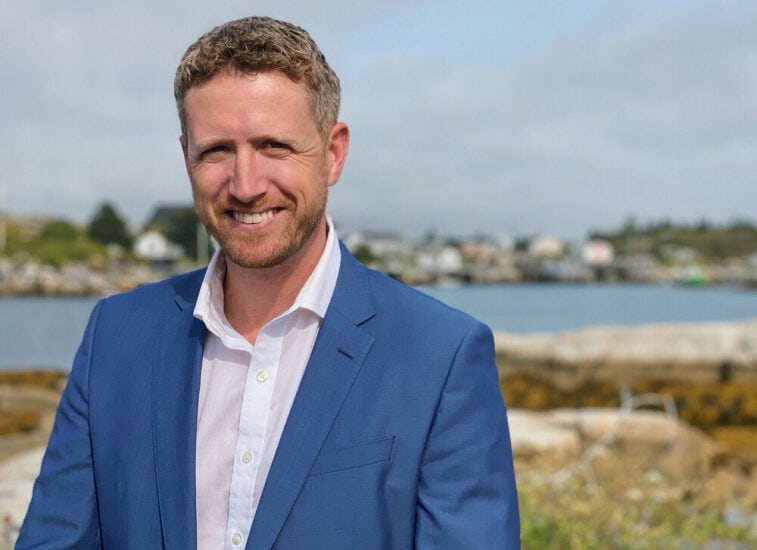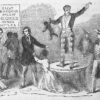
KJIPUKTUK (Halifax) – Premier Rankin’s stunning admission on Monday of a criminal record dating back nearly two decades has cast doubt on his ability to lead the province.
Rankin, who was convicted of drinking and driving in 2003, had his license suspended for one year, and paid a $1,200 fine.
Only two years later, he was convicted a second time for failing a breathalyzer test. Upon appeal, the breathalyzer was tossed, and the Crown did not present any evidence, causing the case to be thrown out.
For journalists, reporting on political scandals can be difficult to navigate. Despite politicians being public figures, and subject to a greater sense of public scrutiny, reporters should remain cognizant that addiction does not discriminate by class.
The journalism industry has faced a reckoning from our past failures in covering political scandals around both substance abuse and criminality. How we tell the Premier’s story will demonstrate if we’ve learned from our past transgressions.
Let’s make one thing clear: Having a history of substance abuse should not disqualify you from bettering yourself through education and employment.
As we talk about Rankin’s past, we should be careful not to conflate informed choices with decisions driven by substance abuse.
In a sense, Rankin’s story is one of resilience, rising above the intergenerational addiction issues plaguing his family, like many others.
Addiction causes generational trauma and that’s why we see intergenerational substance abuse in families. Children raised by parents suffering from substance abuse issues are more likely to find themselves tackling a similar problem at some point in life.
Addiction can happen to someone with no income, and it can happen to the person with the most power. There’s a lot of shame in alcoholism, a disease that wreaks havoc on both the mind and body of its victims.
From another lens, his refusal to disclose this information to the public while seeking public office, as well as his mischaracterization of his 2005 tossed conviction, delegitimizes any effort to raise awareness about substance abuse or take a leadership role on the issue.
In response to the Premier’s past, Andrew Murie, CEO of Mothers Against Drunk Driving Canada, says Rankin must follow up his apology with action.
The Premier is lucky to have had the privilege to leave his past behind him to ascend to the province’s highest position. It’s necessary to point out, though, that a DUI would signify the end of a career for many people, becoming a constant source of strain on their livelihood.
Criminal records prevent people from leaving the country, or deem them ineligible to pursue a variety of careers. A DUI would even prevent a parent from chaperoning a school trip.
What kind of message does it send when we give the Premier a pass while others who are just as deserving of a second chance are disqualified from being even a custodian?
Being accountable goes a long way, even with your back against the wall. I commend Iain Rankin for owning his history, rather than letting rumours swirl.
It’s a missed opportunity, though, to only be honest when others are about to hold you accountable themselves. Speaking your truth only so someone else won’t does not send the same message.
The ways we cover the battle of alcoholism and the narratives we pull from have a direct influence on the mainstream consciousness. That’s why minimizing harm starts with journalists.
Elizabeth Vargas, former co-host of ABC News’ 20/20 and author of Between Breaths: A Memoir of Panic and Addiction, juggled her journalism career with alcoholism for years.
She wrote in her book, “I would die for my children, but I couldn’t stop drinking for them,” adding, “It doesn’t matter how much you have or how little you have…alcohol addiction is an equalizer. It takes everything.”
As we look towards accountability, it’s important to ask ourselves, what kind of accountability are we looking for? Because if we decide Rankin is unfit to be Premier of the province because of a past criminal record, that will create ramifications, even socially, for others who are less advantaged and affluent, and could rip away the confidence of others to come forward and share their story.
Rankin’s conviction dates back nearly two decades. It is likely not indicative of who the Premier is in 2021, or what his values are at this time.
As journalists navigate a scandalous story affecting the highest office in our province, remember that most everyone reading or listening to your coverage has been affected by alcoholism. Maybe some are battling alcoholism themselves.
Reporters should keep this in mind as we seek accountability. Nova Scotians grappling with substance abuse are watching how we talk about this, and may make the difference between speaking up and seeking help, or suffering in silence.
Check out our new community calendar!
With a special thanks to our generous donors who make publication of the Nova Scotia Advocate possible.
Subscribe to the Nova Scotia Advocate weekly digest and never miss an article again. It’s free!




Well written Steven. I like the fact you include his family’s history of substance abuse. The story I would want to tell would be about Rankin’s life at the time, how he grew up with addiction in the family, and how he finally (we assume) overcame circumstances to rise to the highest position in the province. That’s what would be inspiring. And I know you can do it if anybody can.
Mr. Rankin not forth right about second DUI charge. Or about how often he was DUI but not apprehended…
This is wise and cautionary and fair I might add.
Well written and a good cautionary tale about the role that addiction can play in families. However, his admission, coming as it does only after questions arose, and his prevarication about being “found innocent” tell me that he does not truly recognize the privilege he has enjoyed. I wonder how many Liberals and Nova Scotians would have appreciated knowing this before he was chosen as leader and our next Premier? Also his inability to admit that he was drunk (even with the evidence of witnesses and a photocopied breathalyzer report) is an indicator that he has learned how to obfuscate from his predecessor and will run a very opaque government. Too bad Robert Chisholm and many others haven’t been granted the same understanding as Rankin expects to enjoy.
Great article. I’d like to point out that impaired driving is not a symptom of alcoholism. A disregard for the safety of others was the choice made by someone under the influence of alcohol. Not all impaired drivers are alcoholics and most alcoholics do not drive drunk. How different would this story be if the charge was impaired driving causing death?